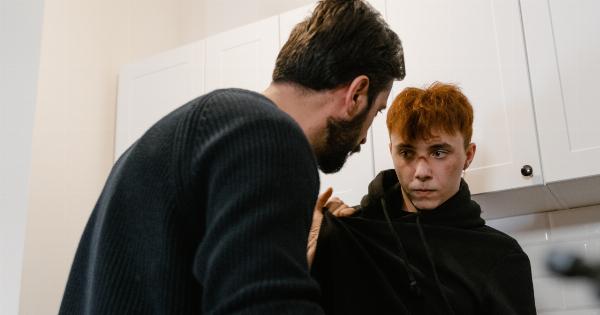Family violence is a complex and tragic issue that affects countless individuals and families worldwide. It is a cycle that often perpetuates through generations, creating a harmful and destructive environment for all involved.
However, by gaining insights from experts such as Costas Tsiaras, we can begin to understand the root causes of family violence and work towards breaking this harmful cycle.
The Vicious Cycle
Family violence refers to any form of abuse or violence that occurs between family members. It includes physical, emotional, and sexual abuse, as well as neglect.
Unfortunately, family violence tends to repeat itself due to various factors such as learned behavior, social norms, and intergenerational trauma.
Costas Tsiaras, a renowned psychologist and family violence expert, emphasizes the importance of understanding the underlying causes of family violence in order to break the cycle.
He explains that many individuals who exhibit violent behaviors have themselves experienced violence or witnessed it within their own families during their formative years.
Prevention and Awareness
Tsiaras stresses the significance of prevention and awareness as crucial steps in breaking the cycle of family violence.
By educating individuals about healthy relationships, conflict resolution, and communication skills from an early age, we can equip them with the necessary tools to build non-violent and respectful relationships.
Creating a safe and supportive environment in schools, communities, and households is essential in preventing family violence.
By fostering an atmosphere of empathy, respect, and open dialogue, we can encourage victims and abusers alike to seek help and break free from the cycle.
Support and Intervention
In cases where family violence has already taken root, offering support and intervention is vital.
Tsiaras suggests the establishment of dedicated shelters, helplines, and counseling services that provide a safe haven for victims and offer professional guidance and support.
Intervening early and providing comprehensive assistance can help victims regain control of their lives and prevent further harm.
Additionally, it is crucial to address the needs of perpetrators as well, offering therapy, rehabilitation programs, and anger management courses to address the underlying issues that fuel their violent behavior.
Rehabilitation and Healing
Breaking the cycle of family violence involves not only immediate support and intervention but also long-term rehabilitation and healing.
Tsiaras emphasizes the importance of ongoing therapy and counseling for both victims and abusers to address the psychological and emotional scars left by the violence.
Institutional support, legal protections, and community resources play a significant role in the rehabilitation process as well.
Creating a system that holds perpetrators accountable for their actions while providing avenues for healing and rebuilding can help individuals and families break free from the patterns of violence.
The Role of the Community
Costas Tsiaras highlights the need for a collective effort from the community to address family violence effectively.
By creating a culture of intolerance towards violence, promoting empathy, and supporting survivors, communities can play a crucial role in breaking the cycle.
Community-led initiatives, awareness campaigns, and the provision of accessible resources can empower individuals to seek help and intervene when witnessing signs of family violence.
Moreover, fostering collaboration among various stakeholders – such as schools, healthcare providers, law enforcement, and social services – is essential for creating a holistic approach to tackle this complex issue.
The Importance of Mental Health
Addressing mental health concerns is paramount when working towards breaking the cycle of family violence.
Tsiaras emphasizes that many individuals involved in family violence suffer from unresolved traumas, mental health disorders, and substance abuse problems.
By investing in mental health resources, offering counseling services, and reducing the stigma associated with seeking help, we can support individuals in breaking free from the cycle of violence.
Early detection and intervention for mental health issues not only benefit the affected individuals but also contribute to the overall prevention of family violence.
Building a Safer Future
Breaking the cycle of family violence requires a multifaceted approach involving prevention, awareness, support, intervention, rehabilitation, and community involvement.
The insights provided by experts like Costas Tsiaras shed light on the underlying factors that contribute to family violence and offer hope for a safer future.
By prioritizing education, support, and mental health, we can empower individuals and families to break free from the grips of violence and create a more compassionate and nurturing society for future generations.






























